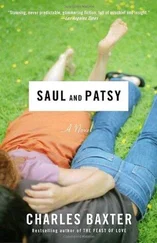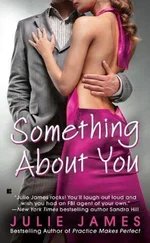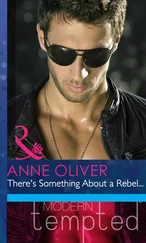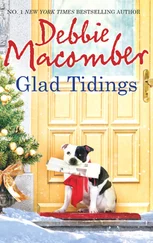“Who?” I ask.
“Capitalists,” she says, and suddenly I’m not following her. “They’ve made my life miserable. They’ve made me a crazy person. You can talk about the victims of Communism all you want, but as a woman I’m a victim of Capitalism, because did I tell you how they took away my pension? I had a pension, and they gave it to investors and the investors invested the money in bogus real estate and bundled something-or-others, and so I ended up with nothing, bereft, broke, a ruined person, no pension, plus I was crazy and alone, and meanwhile the capitalists were accumulating everything and coming after me in their suits. Have you ever seen how they live? It’s comical.”
“I agree with you, Corinne,” I tell her, because I do. By now we are inside the cemetery, and we stop, because overhead in the sunlight a bird is singing, a song sparrow. We walk on quietly until we come to my husband, Mike’s resting place.
Michael Erickson
1937–1967
Next to him is the space in the sacred ground where I’ll be casketed in a couple of years. I love this cemetery. I do. I come here often. It’s so quiet here under the balding blue sky with its wisps of white hair, and as we’re looking down at the grass and the leaves, serenaded by the song sparrows, Corinne falls to her knees, smelly as she still is, a human wreck. She mumbles a prayer. “Wesley’s daddy,” my former daughter-in-law cries out, “God bless him, rest in peace, forever and ever and ever.” She’s so vehement, she sounds Irish.
This is how I know she’ll take care of me once I’m incapacitated. Slowly, on my bad knees, I get down too. How lovely is her madness to me now.
—
We get back to the house, and that night the capitalism theme starts up again at the dinner table. We seem to be a household of revolution  aries. This time it comes from Jeremy, who before dinner walks into the kitchen barefoot, holding his iPhone. I am sitting, drinking tea. He’s sixteen or seventeen, I can’t remember which. Usually he and I talk about space aliens, and I pretend they exist to humor him and bring him around eventually to Jesus, but tonight he’s looking at something else. He’s wearing his Rage Against the Machine T-shirt, and I notice that he’s growing a mustache and succeeding with it this time.
aries. This time it comes from Jeremy, who before dinner walks into the kitchen barefoot, holding his iPhone. I am sitting, drinking tea. He’s sixteen or seventeen, I can’t remember which. Usually he and I talk about space aliens, and I pretend they exist to humor him and bring him around eventually to Jesus, but tonight he’s looking at something else. He’s wearing his Rage Against the Machine T-shirt, and I notice that he’s growing a mustache and succeeding with it this time.
“I can’t fucking believe it,” he says to me. I don’t mind his use of obscenity. Really, I don’t. It tickles me, I can’t say why. “Grandma Dee, do you like elephants?”
“I like them very much,” I say. “Though I’ve never known any one of them personally.” We’re seated at the kitchen table. Astrid is making dinner, Wesley is in the garage doing something-or-other, and Corinne is upstairs cooing in front of the TV set. I don’t know where Lucy is — reading somewhere in the house, I expect. “They are among the greatest of God’s creatures,” I say. “I understand that they mourn their dead.”
“So look at this fucking thing,” he says, pointing at the little phone screen.
“It’s too small. I can’t see it.”
“Want me to read it?” he asks. What a handsome young man he is. I enjoy his company. It’s so easy to love a grandchild, there’s no effort to it at all. Besides, his face reminds me of my late husband’s face just a little.
“Sure,” I say.
“Well, see the thing is, it’s about elephants being killed and like that.”
“What about them?” Astrid asks, from over by the stove. “Killed how?”
“Okay, so in Zimbabwe, which I know where it is because we’ve studied it in geography, anyway what this says, this article, is, they’ve been, these people, these Zimbabweans, putting cyanide into the water holes in this, like, huge park, to kill the elephants. And these fuckers have access, I guess, to industrial cyanide that they use in gold mining—”
“Jeremy, please watch your language,” Astrid says demurely. She’s dicing tomatoes now.
“And they’ve been, I mean the poisoned water hole has been, like, killing the little animals, the cheetahs, and then the vultures, that eat the cheetahs once they’re dead, so it’s, like, this total outdoor death palace eatery, but mostly the cyanide in the water holes has been killing the elephants .” He gazes at me as if I’m to blame. I’m old. I understand: old people are responsible for everything. “Which are harmless?”
“Why’ve they been doing that?” I ask.
“Killing elephants? For the ivory. They have, like, tusks.”
“How many elephants,” I ask, “did they do this to?”
“It says here eighty,” Jeremy tells me. “Eighty dead elephants poisoned by cyanide lying in dead elephant — p  iles. Jesus, I hate people sometimes.”
iles. Jesus, I hate people sometimes.”
“Yes,” I say. “That’s fair.”
“What do you suppose they do with all that ivory?” Astrid asks, stirring a sauce.
“For carvings,” I say. “They carve little Buddhas. They kill the elephants and carve the happy Buddha. Then they sell the happy Buddha to Americans. The little ivory Buddha goes in the lighted display case.”
“That is so wrong,” Jeremy says. “People are fucking sick. These elephants are more human, for fuck’s sake, than the humans.”
“It’s the avarice,” I say.
“It’s the what?” he asks.
“Another word for greed. Go ask Corinne,” I tell him. “She’s upstairs, watching TV. She doesn’t like it, either. She sounds like you.”
“I still hate her,” he says. “I can’t talk to her yet. It’s my policy . She just wasn’t—”
“I know, I know,” I say. “The policy is understand  able. You’ll just have to give it up eventually, sweetie.”
able. You’ll just have to give it up eventually, sweetie.”
“You can’t tell me that it’s no biggie because it was a biggie. If that wasn’t a biggie, leaving my dad and you to take care of me, then nothing is big, you know?”
“Yes,” I say. “I understand. For now.”
“Jeremy,” Astrid pipes up from the stove, “where’s your father?”
“Him? He’s out in the garage. He’s working on the truck or something. I heard him drop his wrench and swear a minute ago. There are too many of them in the house . That’s what he said before he went out there. He’s been saying it.”
“Too many what?” Astrid asks.
“Women,” I say, because I know Wesley and how he thinks. “We confuse him.”
—
I can see it all, and I know exactly what will happen. I have second-sight, which I got from my own father, who foresaw his death. He saw an albino deer cross the road in front of his car while he was on vacation, and he turned to my mother and said, “Something will happen to me,” and something did. A stroke took him a week later, and no one was surprised.
They’ll do surgery on me and give me the usual chemo and radiation. I’ll be okay for a while, but then it will come back in other locations in my body. I won’t have too much time then. The point is not to be morbid but to meet the end of life with celebration. This is what I want to say: the thought of dying is a liberation for me. It frees us from the accumulations.
This is where Corinne comes in. I have it all planned out. I will say to her, “There’s something I want you to do. I want you to accompany me on this journey as far as you can. You can’t go all the way, but you can keep me company part of the way.” She’ll agree to this. As long as I can walk, Corinne will take me around to the parks and the lakes. We’ll go to the Lake Harriet rose garden, and together we’ll identify those roses — flor  ibunda! hybrid tea! — and then we’ll stroll into the Roberts Bird Sanctuary nearby. I know most of the birds over there: there’s a nest of great horned owls, with a couple of owlets growing up and eating whatever the mama owl brings to them, including, I once saw, a crow. I’ve seen warblers and egrets and herons, very dignified creatures, though comical. We’ll see the standard-issue birds, the robins, chickadees, blue jays, and cardinals, birds of that ilk.
ibunda! hybrid tea! — and then we’ll stroll into the Roberts Bird Sanctuary nearby. I know most of the birds over there: there’s a nest of great horned owls, with a couple of owlets growing up and eating whatever the mama owl brings to them, including, I once saw, a crow. I’ve seen warblers and egrets and herons, very dignified creatures, though comical. We’ll see the standard-issue birds, the robins, chickadees, blue jays, and cardinals, birds of that ilk.
Читать дальше
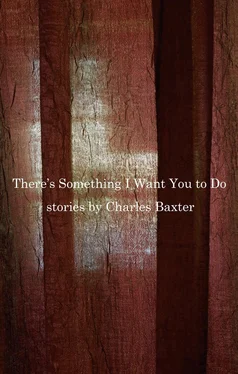
 aries. This time it comes from Jeremy, who before dinner walks into the kitchen barefoot, holding his iPhone. I am sitting, drinking tea. He’s sixteen or seventeen, I can’t remember which. Usually he and I talk about space aliens, and I pretend they exist to humor him and bring him around eventually to Jesus, but tonight he’s looking at something else. He’s wearing his Rage Against the Machine T-shirt, and I notice that he’s growing a mustache and succeeding with it this time.
aries. This time it comes from Jeremy, who before dinner walks into the kitchen barefoot, holding his iPhone. I am sitting, drinking tea. He’s sixteen or seventeen, I can’t remember which. Usually he and I talk about space aliens, and I pretend they exist to humor him and bring him around eventually to Jesus, but tonight he’s looking at something else. He’s wearing his Rage Against the Machine T-shirt, and I notice that he’s growing a mustache and succeeding with it this time.


